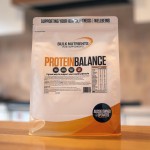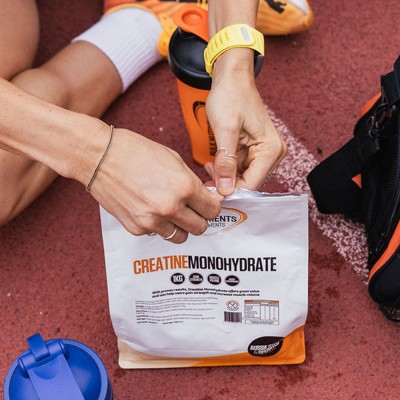Why You Need to Try Protein Balance!

Protein Balance: The Development Stage
Ever since we knew KidActiv would be discontinued, it’d been a priority for our Research & Development team to look into a replacement product of sorts. We really noticed a gap in the Australian protein and supplement market for a protein for teenagers, to help support young people's growth.
We spoke with Damien, our R&D manager about the process behind developing Protein Balance:
“We were focussed on teenagers – healthy, active kids between 13 and 17 years. In line with our ethos we wanted to make a product that’s simple in terms of ingredients, no nasty fillers, and we wanted the product to taste great using only natural sweeteners and flavours,” he said.
“For us, it ticked all the boxes – appealing to teenagers and parents alike. So off we went on our quest to come up with a great-tasting shake that had actual benefits for active, growing bodies.
“We know that protein is important through many stages of our life cycle, but we wanted other ingredients that would complement the protein”.
We believe Protein Balance is the best (non-food) protein for teenagers, due to the specifically designed recipe, which our R&D team worked on for more than three months.
Protein Balance is a good source of protein for teenagers, is high in protein as well as being a good source of dietary fibre, vitamins, minerals and electrolytes.

How Does Protein Balance Work For Teenagers As Well As Older People As They Age?
Damien explains.
“We stopped and thought for a moment – the nutritional needs of growing teenagers are actually very similar to those of aging adults,” he said.
“So we had a look into it, and it turns out this new product Protein Balance is perfect for both!”
What Does Protein Balance Offer?
Protein Balance is somewhat unique, given it has the potential to assist two very diverse age demographics – growing teenagers, and people as they age.
Protein is a macronutrient needed for growth and to keep muscles healthy. Young people need an adequate level of protein in their diet to support their development, and for fussy kids and teenagers, Protein Balance is a great option given its delicious flavour.
Protein is great for growth and muscle recovery, but it also can assist people needing a bit of extra support as they age. Protein in the body is found in muscle, with research suggesting protein requirements may be higher in older people, given muscle mass is proven to decrease with age and too little protein is linked to further muscle loss and potential malnutrition.
Protein Balance gets its dietary fibre from pea fibre.
To support growing bodies, it was also important for dietary fibre to be a key ingredient. With more than 4 grams of dietary fibre per serve, Protein Balance is classed as having a “good source of dietary fibre”.
Protein Balance contains Whey Protein Concentrate (WPC).
Making it even better for gut health, Protein Balance has an added lactase enzyme, helping aid digestion and breaking down lactose, making it easier for people with a lactose intolerance to enjoy. This means that it's a great protein powder for teenagers as it is able to fit easily into different diets.
Cocoa, alongside natural flavour and natural sweetener, give Protein Balance its great choc malt flavour, with no added sugar. Our special sweetener blend provides a sweet taste similar to sugar with zero bitterness, unlike conventional natural sweeteners.
Protein Balance contains a well balanced multi-vitamin and mineral blend, along with sodium chloride, providing electrolytes for hydration as well.

Why Should I Try Protein Balance?
If you were a purchaser of KidActiv, Protein Balance is a delicious tasting alternative that’s great to support the nutritional needs of your active teenager. Yes - protein powder is safe for children/teenagers, and the Choc Malt flavour might make it appealing for you to try it yourself!
Or if you/someone in your life is aging and has any concerns about their protein and fibre intake it’s a great tasting option to try out.

Ebony is our resident wordsmith here at Bulk! A reforming journalist and a graduate of the University of Tasmania, she's our resident copywriter, cat mum, pilates princess and (self appointed) Chief Swiftie!
More about Ebony AbblittReferences:
Institute of Medicine, Food and Nutrition Board. Dietary Reference Intakes for Energy, Carbohydrates, Fiber, Fat, Fatty Acids, Cholesterol, Protein, and Amino Acids. Washington, DC: National Academy Press, 2005. https://www.nap.edu/read/10490/ chapter/1.





























